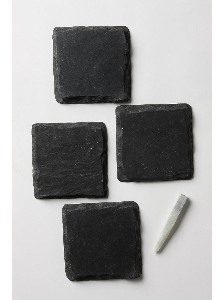Could our problem with math be we don’t give a rat’s ass?
 I’ve been reviewing a number of options for students to learn mathematics.
I’ve been reviewing a number of options for students to learn mathematics.
A lot of sources kind of sucked. At best, these sites were just the same old thing, flash cards but on a computer screen, for example. There is nothing terribly wrong with that, but it is hard to imagine that they have any greater benefit than just using index cards you picked up at any store and writing 2 x 3 on one side and 6 on the other, which is how I think everyone has learned multiplication since we quit writing on slates with a piece of chalk. Hey, maybe we should go back to that. It probably involves less waste. Green math! But I digress …
At worst, these sites were just plain wrong. This was more often true for those that dealt with less basic mathematics, where they would, for example, give a definition for a chi-square that was really for a t-test or say that the median was the most common score in a distribution (It isn’t. That’s the mode.)
Other sites were better, including videos of short lectures and the explanation of whatever the topic they were teaching was correct. (AnnMaria’s first rule of teaching – have something non-stupid to say).
Two examples are:
- Khan Academy site, which is free, has over 2,000 videos and Bill Gates as its BFF.
- Cool Math Guy website has some free samples, for others, you have to pay. The videos I saw are good explanations of such topics on trigonometry.
There are hoards of math game sites out there, many of which are just a computerized version of asking your child over and over what is 47 + 52 until his brain crawls out his left ear and runs away just to escape the boredom.
Then, there are sites like Gamequarium, which offers a LOT of different math games for every topic, most of which look like they would be fun if you were immature, which I am.
 ALL of the resources I found suffer from the same fatal flaw which is that they begin with the presumption that the student has some interest in learning math. This seems a reasonable, some might even say ‘sane’, assumption based on the fact that the person has come to a site that is for teaching mathematics. For those people who seek out these sites, they might work.
ALL of the resources I found suffer from the same fatal flaw which is that they begin with the presumption that the student has some interest in learning math. This seems a reasonable, some might even say ‘sane’, assumption based on the fact that the person has come to a site that is for teaching mathematics. For those people who seek out these sites, they might work.
The problem is with the vast majority of people who WON’T ever voluntarily go to these sites because they really don’t give a rat’s ass if they ever learn math or not. Sometimes, as this excellent article “The Education of Jose Pedrazza” points out, they are much more concerned about whether they are going to be homeless, how their family is going to eat.
Given those circumstances, it’s really hard to focus on if you learn this math, you’ll be able to do next year’s math and so on for the next 10 years until you graduate from college and get a good-paying job. It’s all well and good to talk about delayed gratification when you are sitting here like me drinking Chardonnay at an expensive oak desk, and quite another when your mom is collecting cans to come up with money for dinner.
Some of it, the odds are great that you will NEVER use. I just came across this statement in a publication on research in teaching and learning mathematics.
“Across all age levels, the best estimates are made in temperature situations and the most difficult estimates involve acreage situations.”
ACREAGE? Okay, I’m 52 years old, I use math for a living, I’ve bought and sold four houses in my life, including one that had five acres of land with it and was in North Dakota AND NEVER IN MY LIFE HAVE I NEEDED TO ESTIMATE ACREAGE!!
Yes, I am sure there are farmers and landscape architects and people doing surveillance for homeland security applications who may need to estimate acreage. Every time I write something like this, I get hate mail from people telling me this is why they will never hire me to work for them at Google Maps. (Of course, when I look up these people, they never actually work for Google, or anybody. They are invariably some embittered graduate student teaching Mathematics of Acreage Estimation at Boo-hoo U. )
My point is that most of math is taught completely out of context with no real thought to application other than answering a question on the SAT. For some students, like the most spoiled 13-year-old in America, who happens to live in my house, that is adequate enough incentive. One reason is that for her, and many of her peers, it is NOT gratification delayed ten years. At the end of the school year, many neighborhood parents trek to the Apple Store to buy the iPhone 4 or the gadget du jour for Buffy and Justin who got an A in math. In eighth grade, the kids will all take their high school entrance exams, and when the test scores come and acceptance letters come out, there will be ANOTHER round of iPhone -buying and trips to The Grove. A couple of years after that, many of those same kids will get their first car, with the stern admonition that, “Your grades better stay up or you will be walking to St. Alphonso’s Catholic High School “.
I was a little depressed after I read this article on the Los Gatos Patch, where the mother happily admits that she could not do her 14-year-old son’s Algebra class. It tells me not only that we find it perfectly acceptable not to know math (while it is NOT okay to say that you forgot how to read) but also that the mom obviously has no need for Algebra in her daily life. On the other hand, I was majorly impressed that she got her son to make dinner and to clean up – twice.
Some people just like math – I did and I still do. That’s only incentive, though, to study the parts that interest you. For example, I watched a video on trigonometry for about five minutes. Then I was bored. It was exactly like the movie, Freaky Friday, where the middle-aged mother changes bodies with her teenage daughter, and in algebra class tells the teacher, “No, believe me, I will NEVER use this.”
I use algebra nearly every day of my life. I use matrix algebra, not every day, but certainly weekly, and calculus fairly often, too. On the other hand, I have NEVER and I do mean, NEVER, needed to know a sine, cosine, tangent, arctangent for any reason whatsoever, not even when I was an industrial engineer. This isn’t to say that no one ever uses these. I asked the house rocket scientist when was the last time he used any of these and he said that everyone in the real world uses all of these every day. Well, EXCUSE ME!
Perhaps we have it backwards. Instead of railing about the poor performance of our kids on tests and teaching to the test, maybe we should turn things around. Perhaps we should start with why they need to know how to calculate acreage, t-tests or cosines. Give them some projects where this information as applied. Maybe then not only will they actually give a rat’s ass if they learn it or not, but they’ll also still remember it when they have 14-year-old kids of their own and be able to use that information on the job when people like me hire them.
Wouldn’t that be a nice change of pace?
Putting my psychologist hat on, cards and handwriting actually may be more effective in teaching maths than the same type of thing on a computer screen, as there’s some evidence that engaging the motor system helps learning.
On the matter of maths education, I started reading a book recently, (Alex’s adventures in Numberland) where he was suggesting that some research showed that estimating ratios appears to be the foundation for much of our mathematical awareness, so that might be something to look into.
One thing I’ve noticed in teaching stats is that an awful lot of my students come in thinking “math is hard” and that they can’t do it. Something about how we teach the topic when these folks are young convinces them that they can’t do it, and no amount of encouragement on my part can convince them otherwise. We make it hard early on and create a block in their minds that seems to last throughout their education.